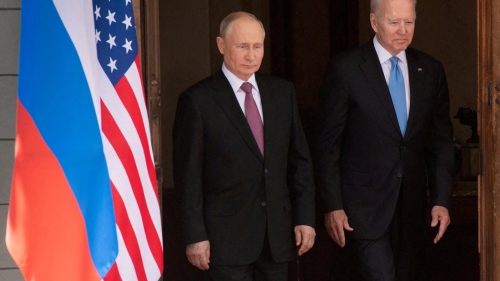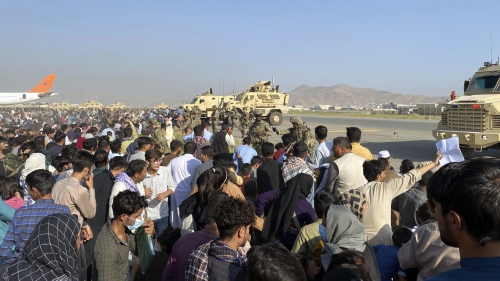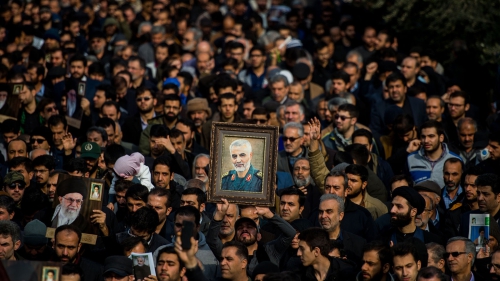a:19:{s:8:"theTitle";s:24:"Hubris is Our Fatal Flaw";s:12:"thePermalink";s:58:"https://www.islamicity.org/81822/hubris-is-our-fatal-flaw/";s:13:"theAuthorName";s:11:"James Zogby";s:12:"theThumbnail";s:76:"https://media.islamicity.org/wp-content/uploads/2022/11/iStock-466116477.jpg";s:6:"isWhat";s:7:"article";s:7:"theIcon";s:0:"";s:8:"theEmbed";s:0:"";s:11:"theCategory";s:44:"cannot-retrieve-category-see-cell-part-1.php";s:6:"theTag";s:29:"arab world|/topics/arab-world";s:7:"theDate";s:11:"Nov 14 2022";s:11:"theDate_ORG";s:42:"November 13, 2022 {wpcf-soft-date engaged}";s:9:"theAuthor";s:27:"James Zogby|/by/james-zogby";s:5:"theID";i:81822;s:14:"theReadingTime";s:6:"5 min.";s:10:"theExcerpt";s:186:"Future historians writing about America’s Middle East foreign policy during the last quarter century should include a lengthy chapter entitled “American Hubris.”
Hubris i......";s:12:"theTitle_ORG";s:24:"Hubris is Our Fatal Flaw";s:25:"processRelatedFacetsTitle";s:0:"";s:15:"whereItCameFrom";s:43:"content.php & related posts > post_tag=iraq";s:8:"theFacet";s:0:"";}
a:19:{s:8:"theTitle";s:29:"Look Who’s Crying Foul Now?";s:12:"thePermalink";s:59:"https://www.islamicity.org/80210/look-whos-crying-foul-now/";s:13:"theAuthorName";s:14:"Habib Siddiqui";s:12:"theThumbnail";s:78:"https://media.islamicity.org/wp-content/uploads/2022/03/Putin-Biden-scaled.jpg";s:6:"isWhat";s:7:"article";s:7:"theIcon";s:0:"";s:8:"theEmbed";s:0:"";s:11:"theCategory";s:44:"cannot-retrieve-category-see-cell-part-1.php";s:6:"theTag";s:17:"iraq|/topics/iraq";s:7:"theDate";s:11:"Mar 26 2022";s:11:"theDate_ORG";s:39:"March 26, 2022 {wpcf-soft-date engaged}";s:9:"theAuthor";s:33:"Habib Siddiqui|/by/habib-siddiqui";s:5:"theID";i:80210;s:14:"theReadingTime";s:7:"13 min.";s:10:"theExcerpt";s:186:"Nineteen years ago, Iraq was invaded by the USA, the UK, Australia and Poland on March 19, 2003, after the Bush administration announced that "diplomacy has failed" and that it wo......";s:12:"theTitle_ORG";s:29:"Look Who’s Crying Foul Now?";s:25:"processRelatedFacetsTitle";s:0:"";s:15:"whereItCameFrom";s:43:"content.php & related posts > post_tag=iraq";s:8:"theFacet";s:0:"";}
a:19:{s:8:"theTitle";s:30:"Did Islam Spread by the Sword?";s:12:"thePermalink";s:63:"https://www.islamicity.org/11479/did-islam-spread-by-the-sword/";s:13:"theAuthorName";s:15:"Firas Alkhateeb";s:12:"theThumbnail";s:75:"http://media.islamicity.org/wp-content/uploads/2017/04/iStock-512700348.jpg";s:6:"isWhat";s:7:"article";s:7:"theIcon";s:0:"";s:8:"theEmbed";s:0:"";s:11:"theCategory";s:44:"cannot-retrieve-category-see-cell-part-1.php";s:6:"theTag";s:19:"spain|/topics/spain";s:7:"theDate";s:10:"Feb 1 2022";s:11:"theDate_ORG";s:39:"April 20, 2017 {wpcf-soft-date engaged}";s:9:"theAuthor";s:35:"Firas Alkhateeb|/by/firas-alkhateeb";s:5:"theID";i:11479;s:14:"theReadingTime";s:7:"14 min.";s:10:"theExcerpt";s:186:"It’s a common accusation made against Muslims and Islam in general: “The only reason Islam is a world religion is because it spread by the sword.” It’s a favorite remark of......";s:12:"theTitle_ORG";s:30:"Did Islam Spread by the Sword?";s:25:"processRelatedFacetsTitle";s:0:"";s:15:"whereItCameFrom";s:43:"content.php & related posts > post_tag=iraq";s:8:"theFacet";s:0:"";}
a:19:{s:8:"theTitle";s:58:"Afghanistan: Latest U.S. War Driven by Deceit and Delusion";s:12:"thePermalink";s:90:"https://www.islamicity.org/78954/afghanistan-latest-u-s-war-driven-by-deceit-and-delusion/";s:13:"theAuthorName";s:12:"Gordon Adams";s:12:"theThumbnail";s:91:"https://media.islamicity.org/wp-content/uploads/2021/08/file-20210817-23-5jd92s-scaled.jpeg";s:6:"isWhat";s:7:"article";s:7:"theIcon";s:0:"";s:8:"theEmbed";s:0:"";s:11:"theCategory";s:44:"cannot-retrieve-category-see-cell-part-1.php";s:6:"theTag";s:17:"iraq|/topics/iraq";s:7:"theDate";s:11:"Aug 21 2021";s:11:"theDate_ORG";s:40:"August 20, 2021 {wpcf-soft-date engaged}";s:9:"theAuthor";s:29:"Gordon Adams|/by/gordon-adams";s:5:"theID";i:78954;s:14:"theReadingTime";s:6:"6 min.";s:10:"theExcerpt";s:186:"In Afghanistan, American hubris – the United States’ capacity for self-delusion and official lying – has struck once again, as it has repeatedly for the last 60 years.
Thi......";s:12:"theTitle_ORG";s:58:"Afghanistan: Latest U.S. War Driven by Deceit and Delusion";s:25:"processRelatedFacetsTitle";s:0:"";s:15:"whereItCameFrom";s:43:"content.php & related posts > post_tag=iraq";s:8:"theFacet";s:0:"";}
a:19:{s:8:"theTitle";s:91:"The ‘Great Game’ is Afoot: Killing Soleimani Reflects US Desperation in the Middle East";s:12:"thePermalink";s:118:"https://www.islamicity.org/22436/the-great-game-is-afoot-killing-soleimani-reflects-us-desperation-in-the-middle-east/";s:13:"theAuthorName";s:15:"Ramzy Baroud+..";s:12:"theThumbnail";s:85:"http://media.islamicity.org/wp-content/uploads/2020/01/qasem-soleimani-assassinat.jpg";s:6:"isWhat";s:7:"article";s:7:"theIcon";s:0:"";s:8:"theEmbed";s:0:"";s:11:"theCategory";s:44:"cannot-retrieve-category-see-cell-part-1.php";s:6:"theTag";s:45:"benjamin netanyahu|/topics/benjamin-netanyahu";s:7:"theDate";s:10:"Jan 8 2020";s:11:"theDate_ORG";s:40:"January 7, 2020 {wpcf-soft-date engaged}";s:9:"theAuthor";s:32:"Ramzy Baroud+..|/by/ramzy-baroud";s:5:"theID";i:22436;s:14:"theReadingTime";s:7:"10 min.";s:10:"theExcerpt";s:186:"By killing top Iranian military commander, Qasem Soleimani, American and Israeli leaders demonstrated the idiom ‘out of the frying pan into the fire.’
US President Donald Tr......";s:12:"theTitle_ORG";s:91:"The ‘Great Game’ is Afoot: Killing Soleimani Reflects US Desperation in the Middle East";s:25:"processRelatedFacetsTitle";s:0:"";s:15:"whereItCameFrom";s:43:"content.php & related posts > post_tag=iraq";s:8:"theFacet";s:0:"";}
a:19:{s:8:"theTitle";s:46:"Hassan Rouhani Addresses U.N. General Assembly";s:12:"thePermalink";s:79:"https://www.islamicity.org/22060/hassan-rouhani-addresses-u-n-general-assembly/";s:13:"theAuthorName";s:14:"Hassan Rouhani";s:12:"theThumbnail";s:0:"";s:6:"isWhat";s:5:"video";s:7:"theIcon";s:33:"";s:8:"theEmbed";s:0:"";s:11:"theCategory";s:44:"cannot-retrieve-category-see-cell-part-1.php";s:6:"theTag";s:27:"Palestine|/topics/palestine";s:7:"theDate";s:11:"Sep 27 2019";s:11:"theDate_ORG";s:18:"September 27, 2019";s:9:"theAuthor";s:33:"Hassan Rouhani|/by/hassan-rouhani";s:5:"theID";i:22060;s:14:"theReadingTime";s:7:"51 min.";s:10:"theExcerpt";s:186:"Hassan Rouhani, President of the Islamic Republic of Iran, addresses the general debate of the 74th Session of the General Assembly of the UN (New York, 24 – 30 September 2019).
......";s:12:"theTitle_ORG";s:46:"Hassan Rouhani Addresses U.N. General Assembly";s:25:"processRelatedFacetsTitle";s:0:"";s:15:"whereItCameFrom";s:43:"content.php & related posts > post_tag=iraq";s:8:"theFacet";s:0:"";}
a:19:{s:8:"theTitle";s:43:"'This War Will be Existential for Everyone'";s:12:"thePermalink";s:76:"https://www.islamicity.org/103094/this-war-will-be-existential-for-everyone/";s:13:"theAuthorName";s:12:"David Hearst";s:12:"theThumbnail";s:56:"https://img.youtube.com/vi/xCe99JIUar8/maxresdefault.jpg";s:6:"isWhat";s:5:"video";s:7:"theIcon";s:33:"";s:8:"theEmbed";s:43:"https://www.youtube.com/watch?v=xCe99JIUar8";s:11:"theCategory";s:44:"cannot-retrieve-category-see-cell-part-1.php";s:6:"theTag";s:17:"iran|/topics/iran";s:7:"theDate";s:11:"Oct 21 2024";s:11:"theDate_ORG";s:41:"October 20, 2024 {wpcf-soft-date engaged}";s:9:"theAuthor";s:29:"David Hearst|/by/david-hearst";s:5:"theID";i:103094;s:14:"theReadingTime";s:6:"6 min.";s:10:"theExcerpt";s:186:"David Hearst discusses why he believes “it is only a matter of time before this war and these tactics involve every country threatened by Israel’s ever-expanding borders.”
H......";s:12:"theTitle_ORG";s:43:"'This War Will be Existential for Everyone'";s:25:"processRelatedFacetsTitle";s:0:"";s:15:"whereItCameFrom";s:43:"content.php & related posts > post_tag=iraq";s:8:"theFacet";s:0:"";}
a:19:{s:8:"theTitle";s:44:"Israel Can’t Fight All Fronts at Same Time";s:12:"thePermalink";s:75:"https://www.islamicity.org/93875/israel-cant-fight-all-fronts-at-same-time/";s:13:"theAuthorName";s:10:"Ali Hashem";s:12:"theThumbnail";s:56:"https://img.youtube.com/vi/LtI9CqGP-AE/maxresdefault.jpg";s:6:"isWhat";s:5:"video";s:7:"theIcon";s:33:"";s:8:"theEmbed";s:43:"https://www.youtube.com/watch?v=LtI9CqGP-AE";s:11:"theCategory";s:44:"cannot-retrieve-category-see-cell-part-1.php";s:6:"theTag";s:27:"Palestine|/topics/palestine";s:7:"theDate";s:10:"Dec 2 2023";s:11:"theDate_ORG";s:41:"December 1, 2023 {wpcf-soft-date engaged}";s:9:"theAuthor";s:25:"Ali Hashem|/by/ali-hashem";s:5:"theID";i:93875;s:14:"theReadingTime";s:0:"";s:10:"theExcerpt";s:186:"What is the “resistance axis” and why does it matter in Israel’s genocide on Gaza? What is it like on the ground in Lebanon’s south where Hezbollah has been fiercely confro......";s:12:"theTitle_ORG";s:44:"Israel Can’t Fight All Fronts at Same Time";s:25:"processRelatedFacetsTitle";s:0:"";s:15:"whereItCameFrom";s:43:"content.php & related posts > post_tag=iraq";s:8:"theFacet";s:0:"";}
a:19:{s:8:"theTitle";s:38:"The '67 Arab-Israeli War | Documentary";s:12:"thePermalink";s:69:"https://www.islamicity.org/93012/the-67-arab-israeli-war-documentary/";s:13:"theAuthorName";s:10:"Al Jazeera";s:12:"theThumbnail";s:56:"https://img.youtube.com/vi/cn3RUZsaPmg/maxresdefault.jpg";s:6:"isWhat";s:5:"video";s:7:"theIcon";s:33:"";s:8:"theEmbed";s:43:"https://www.youtube.com/watch?v=cn3RUZsaPmg";s:11:"theCategory";s:44:"cannot-retrieve-category-see-cell-part-1.php";s:6:"theTag";s:49:"palestinian refugees|/topics/palestinian-refugees";s:7:"theDate";s:11:"Nov 19 2023";s:11:"theDate_ORG";s:42:"November 18, 2023 {wpcf-soft-date engaged}";s:9:"theAuthor";s:29:"Al Jazeera|/source/al-jazeera";s:5:"theID";i:93012;s:14:"theReadingTime";s:7:"59 min.";s:10:"theExcerpt";s:186:"The June 1967 war was a critical development in the Arab-Israeli conflict, with consequences that are felt across the region to this day.
It redrew the landscape of the confli......";s:12:"theTitle_ORG";s:38:"The '67 Arab-Israeli War | Documentary";s:25:"processRelatedFacetsTitle";s:0:"";s:15:"whereItCameFrom";s:43:"content.php & related posts > post_tag=iraq";s:8:"theFacet";s:0:"";}
a:19:{s:8:"theTitle";s:34:"How the Iraq War Changed the World";s:12:"thePermalink";s:68:"https://www.islamicity.org/82185/how-the-iraq-war-changed-the-world/";s:13:"theAuthorName";s:3:"Aj+";s:12:"theThumbnail";s:44:"https://img.youtube.com/vi/Mk6_qwnd8tk/0.jpg";s:6:"isWhat";s:5:"video";s:7:"theIcon";s:33:"";s:8:"theEmbed";s:43:"https://www.youtube.com/watch?v=Mk6_qwnd8tk";s:11:"theCategory";s:44:"cannot-retrieve-category-see-cell-part-1.php";s:6:"theTag";s:37:"foreign policy|/topics/foreign-policy";s:7:"theDate";s:11:"Mar 19 2023";s:11:"theDate_ORG";s:39:"March 18, 2023 {wpcf-soft-date engaged}";s:9:"theAuthor";s:14:"Aj+|/source/aj";s:5:"theID";i:82185;s:14:"theReadingTime";s:6:"6 min.";s:10:"theExcerpt";s:101:"At 5:34 am Baghdad time on 20 March 2003 (9:34 pm, 19 March EST) the military invasion of Iraq began.";s:12:"theTitle_ORG";s:34:"How the Iraq War Changed the World";s:25:"processRelatedFacetsTitle";s:0:"";s:15:"whereItCameFrom";s:43:"content.php & related posts > post_tag=iraq";s:8:"theFacet";s:0:"";}
a:19:{s:8:"theTitle";s:50:"What is the legacy of the US-led invasion in Iraq?";s:12:"thePermalink";s:83:"https://www.islamicity.org/82182/what-is-the-legacy-of-the-us-led-invasion-in-iraq/";s:13:"theAuthorName";s:10:"Al Jazeera";s:12:"theThumbnail";s:44:"https://img.youtube.com/vi/_keMYfZcS4A/0.jpg";s:6:"isWhat";s:5:"video";s:7:"theIcon";s:33:"";s:8:"theEmbed";s:43:"https://www.youtube.com/watch?v=_keMYfZcS4A";s:11:"theCategory";s:44:"cannot-retrieve-category-see-cell-part-1.php";s:6:"theTag";s:37:"foreign policy|/topics/foreign-policy";s:7:"theDate";s:11:"Mar 17 2023";s:11:"theDate_ORG";s:39:"March 18, 2023 {wpcf-soft-date engaged}";s:9:"theAuthor";s:29:"Al Jazeera|/source/al-jazeera";s:5:"theID";i:82182;s:14:"theReadingTime";s:6:"6 min.";s:10:"theExcerpt";s:122:"It’s been nearly 20 years since the 2003 US-led invasion of Iraq ushered in an enduring period of chaos and devastation.";s:12:"theTitle_ORG";s:50:"What is the legacy of the US-led invasion in Iraq?";s:25:"processRelatedFacetsTitle";s:0:"";s:15:"whereItCameFrom";s:43:"content.php & related posts > post_tag=iraq";s:8:"theFacet";s:0:"";}
a:19:{s:8:"theTitle";s:24:"Hubris is Our Fatal Flaw";s:12:"thePermalink";s:58:"https://www.islamicity.org/81822/hubris-is-our-fatal-flaw/";s:13:"theAuthorName";s:11:"James Zogby";s:12:"theThumbnail";s:76:"https://media.islamicity.org/wp-content/uploads/2022/11/iStock-466116477.jpg";s:6:"isWhat";s:7:"article";s:7:"theIcon";s:0:"";s:8:"theEmbed";s:0:"";s:11:"theCategory";s:44:"cannot-retrieve-category-see-cell-part-1.php";s:6:"theTag";s:29:"arab world|/topics/arab-world";s:7:"theDate";s:11:"Nov 14 2022";s:11:"theDate_ORG";s:42:"November 13, 2022 {wpcf-soft-date engaged}";s:9:"theAuthor";s:27:"James Zogby|/by/james-zogby";s:5:"theID";i:81822;s:14:"theReadingTime";s:6:"5 min.";s:10:"theExcerpt";s:186:"Future historians writing about America’s Middle East foreign policy during the last quarter century should include a lengthy chapter entitled “American Hubris.”
Hubris i......";s:12:"theTitle_ORG";s:24:"Hubris is Our Fatal Flaw";s:25:"processRelatedFacetsTitle";s:0:"";s:15:"whereItCameFrom";s:43:"content.php & related posts > post_tag=iraq";s:8:"theFacet";s:0:"";}
a:19:{s:8:"theTitle";s:29:"Look Who’s Crying Foul Now?";s:12:"thePermalink";s:59:"https://www.islamicity.org/80210/look-whos-crying-foul-now/";s:13:"theAuthorName";s:14:"Habib Siddiqui";s:12:"theThumbnail";s:78:"https://media.islamicity.org/wp-content/uploads/2022/03/Putin-Biden-scaled.jpg";s:6:"isWhat";s:7:"article";s:7:"theIcon";s:0:"";s:8:"theEmbed";s:0:"";s:11:"theCategory";s:44:"cannot-retrieve-category-see-cell-part-1.php";s:6:"theTag";s:17:"iraq|/topics/iraq";s:7:"theDate";s:11:"Mar 26 2022";s:11:"theDate_ORG";s:39:"March 26, 2022 {wpcf-soft-date engaged}";s:9:"theAuthor";s:33:"Habib Siddiqui|/by/habib-siddiqui";s:5:"theID";i:80210;s:14:"theReadingTime";s:7:"13 min.";s:10:"theExcerpt";s:186:"Nineteen years ago, Iraq was invaded by the USA, the UK, Australia and Poland on March 19, 2003, after the Bush administration announced that "diplomacy has failed" and that it wo......";s:12:"theTitle_ORG";s:29:"Look Who’s Crying Foul Now?";s:25:"processRelatedFacetsTitle";s:0:"";s:15:"whereItCameFrom";s:43:"content.php & related posts > post_tag=iraq";s:8:"theFacet";s:0:"";}
a:19:{s:8:"theTitle";s:30:"Did Islam Spread by the Sword?";s:12:"thePermalink";s:63:"https://www.islamicity.org/11479/did-islam-spread-by-the-sword/";s:13:"theAuthorName";s:15:"Firas Alkhateeb";s:12:"theThumbnail";s:75:"http://media.islamicity.org/wp-content/uploads/2017/04/iStock-512700348.jpg";s:6:"isWhat";s:7:"article";s:7:"theIcon";s:0:"";s:8:"theEmbed";s:0:"";s:11:"theCategory";s:44:"cannot-retrieve-category-see-cell-part-1.php";s:6:"theTag";s:19:"spain|/topics/spain";s:7:"theDate";s:10:"Feb 1 2022";s:11:"theDate_ORG";s:39:"April 20, 2017 {wpcf-soft-date engaged}";s:9:"theAuthor";s:35:"Firas Alkhateeb|/by/firas-alkhateeb";s:5:"theID";i:11479;s:14:"theReadingTime";s:7:"14 min.";s:10:"theExcerpt";s:186:"It’s a common accusation made against Muslims and Islam in general: “The only reason Islam is a world religion is because it spread by the sword.” It’s a favorite remark of......";s:12:"theTitle_ORG";s:30:"Did Islam Spread by the Sword?";s:25:"processRelatedFacetsTitle";s:0:"";s:15:"whereItCameFrom";s:43:"content.php & related posts > post_tag=iraq";s:8:"theFacet";s:0:"";}
a:19:{s:8:"theTitle";s:58:"Afghanistan: Latest U.S. War Driven by Deceit and Delusion";s:12:"thePermalink";s:90:"https://www.islamicity.org/78954/afghanistan-latest-u-s-war-driven-by-deceit-and-delusion/";s:13:"theAuthorName";s:12:"Gordon Adams";s:12:"theThumbnail";s:91:"https://media.islamicity.org/wp-content/uploads/2021/08/file-20210817-23-5jd92s-scaled.jpeg";s:6:"isWhat";s:7:"article";s:7:"theIcon";s:0:"";s:8:"theEmbed";s:0:"";s:11:"theCategory";s:44:"cannot-retrieve-category-see-cell-part-1.php";s:6:"theTag";s:17:"iraq|/topics/iraq";s:7:"theDate";s:11:"Aug 21 2021";s:11:"theDate_ORG";s:40:"August 20, 2021 {wpcf-soft-date engaged}";s:9:"theAuthor";s:29:"Gordon Adams|/by/gordon-adams";s:5:"theID";i:78954;s:14:"theReadingTime";s:6:"6 min.";s:10:"theExcerpt";s:186:"In Afghanistan, American hubris – the United States’ capacity for self-delusion and official lying – has struck once again, as it has repeatedly for the last 60 years.
Thi......";s:12:"theTitle_ORG";s:58:"Afghanistan: Latest U.S. War Driven by Deceit and Delusion";s:25:"processRelatedFacetsTitle";s:0:"";s:15:"whereItCameFrom";s:43:"content.php & related posts > post_tag=iraq";s:8:"theFacet";s:0:"";}
a:19:{s:8:"theTitle";s:91:"The ‘Great Game’ is Afoot: Killing Soleimani Reflects US Desperation in the Middle East";s:12:"thePermalink";s:118:"https://www.islamicity.org/22436/the-great-game-is-afoot-killing-soleimani-reflects-us-desperation-in-the-middle-east/";s:13:"theAuthorName";s:15:"Ramzy Baroud+..";s:12:"theThumbnail";s:85:"http://media.islamicity.org/wp-content/uploads/2020/01/qasem-soleimani-assassinat.jpg";s:6:"isWhat";s:7:"article";s:7:"theIcon";s:0:"";s:8:"theEmbed";s:0:"";s:11:"theCategory";s:44:"cannot-retrieve-category-see-cell-part-1.php";s:6:"theTag";s:45:"benjamin netanyahu|/topics/benjamin-netanyahu";s:7:"theDate";s:10:"Jan 8 2020";s:11:"theDate_ORG";s:40:"January 7, 2020 {wpcf-soft-date engaged}";s:9:"theAuthor";s:32:"Ramzy Baroud+..|/by/ramzy-baroud";s:5:"theID";i:22436;s:14:"theReadingTime";s:7:"10 min.";s:10:"theExcerpt";s:186:"By killing top Iranian military commander, Qasem Soleimani, American and Israeli leaders demonstrated the idiom ‘out of the frying pan into the fire.’
US President Donald Tr......";s:12:"theTitle_ORG";s:91:"The ‘Great Game’ is Afoot: Killing Soleimani Reflects US Desperation in the Middle East";s:25:"processRelatedFacetsTitle";s:0:"";s:15:"whereItCameFrom";s:43:"content.php & related posts > post_tag=iraq";s:8:"theFacet";s:0:"";}
a:19:{s:8:"theTitle";s:46:"Hassan Rouhani Addresses U.N. General Assembly";s:12:"thePermalink";s:79:"https://www.islamicity.org/22060/hassan-rouhani-addresses-u-n-general-assembly/";s:13:"theAuthorName";s:14:"Hassan Rouhani";s:12:"theThumbnail";s:0:"";s:6:"isWhat";s:5:"video";s:7:"theIcon";s:33:"";s:8:"theEmbed";s:0:"";s:11:"theCategory";s:44:"cannot-retrieve-category-see-cell-part-1.php";s:6:"theTag";s:27:"Palestine|/topics/palestine";s:7:"theDate";s:11:"Sep 27 2019";s:11:"theDate_ORG";s:18:"September 27, 2019";s:9:"theAuthor";s:33:"Hassan Rouhani|/by/hassan-rouhani";s:5:"theID";i:22060;s:14:"theReadingTime";s:7:"51 min.";s:10:"theExcerpt";s:186:"Hassan Rouhani, President of the Islamic Republic of Iran, addresses the general debate of the 74th Session of the General Assembly of the UN (New York, 24 – 30 September 2019).
......";s:12:"theTitle_ORG";s:46:"Hassan Rouhani Addresses U.N. General Assembly";s:25:"processRelatedFacetsTitle";s:0:"";s:15:"whereItCameFrom";s:43:"content.php & related posts > post_tag=iraq";s:8:"theFacet";s:0:"";}
a:19:{s:8:"theTitle";s:43:"'This War Will be Existential for Everyone'";s:12:"thePermalink";s:76:"https://www.islamicity.org/103094/this-war-will-be-existential-for-everyone/";s:13:"theAuthorName";s:12:"David Hearst";s:12:"theThumbnail";s:56:"https://img.youtube.com/vi/xCe99JIUar8/maxresdefault.jpg";s:6:"isWhat";s:5:"video";s:7:"theIcon";s:33:"";s:8:"theEmbed";s:43:"https://www.youtube.com/watch?v=xCe99JIUar8";s:11:"theCategory";s:44:"cannot-retrieve-category-see-cell-part-1.php";s:6:"theTag";s:17:"iran|/topics/iran";s:7:"theDate";s:11:"Oct 21 2024";s:11:"theDate_ORG";s:41:"October 20, 2024 {wpcf-soft-date engaged}";s:9:"theAuthor";s:29:"David Hearst|/by/david-hearst";s:5:"theID";i:103094;s:14:"theReadingTime";s:6:"6 min.";s:10:"theExcerpt";s:186:"David Hearst discusses why he believes “it is only a matter of time before this war and these tactics involve every country threatened by Israel’s ever-expanding borders.”
H......";s:12:"theTitle_ORG";s:43:"'This War Will be Existential for Everyone'";s:25:"processRelatedFacetsTitle";s:0:"";s:15:"whereItCameFrom";s:43:"content.php & related posts > post_tag=iraq";s:8:"theFacet";s:0:"";}
a:19:{s:8:"theTitle";s:44:"Israel Can’t Fight All Fronts at Same Time";s:12:"thePermalink";s:75:"https://www.islamicity.org/93875/israel-cant-fight-all-fronts-at-same-time/";s:13:"theAuthorName";s:10:"Ali Hashem";s:12:"theThumbnail";s:56:"https://img.youtube.com/vi/LtI9CqGP-AE/maxresdefault.jpg";s:6:"isWhat";s:5:"video";s:7:"theIcon";s:33:"";s:8:"theEmbed";s:43:"https://www.youtube.com/watch?v=LtI9CqGP-AE";s:11:"theCategory";s:44:"cannot-retrieve-category-see-cell-part-1.php";s:6:"theTag";s:27:"Palestine|/topics/palestine";s:7:"theDate";s:10:"Dec 2 2023";s:11:"theDate_ORG";s:41:"December 1, 2023 {wpcf-soft-date engaged}";s:9:"theAuthor";s:25:"Ali Hashem|/by/ali-hashem";s:5:"theID";i:93875;s:14:"theReadingTime";s:0:"";s:10:"theExcerpt";s:186:"What is the “resistance axis” and why does it matter in Israel’s genocide on Gaza? What is it like on the ground in Lebanon’s south where Hezbollah has been fiercely confro......";s:12:"theTitle_ORG";s:44:"Israel Can’t Fight All Fronts at Same Time";s:25:"processRelatedFacetsTitle";s:0:"";s:15:"whereItCameFrom";s:43:"content.php & related posts > post_tag=iraq";s:8:"theFacet";s:0:"";}
a:19:{s:8:"theTitle";s:38:"The '67 Arab-Israeli War | Documentary";s:12:"thePermalink";s:69:"https://www.islamicity.org/93012/the-67-arab-israeli-war-documentary/";s:13:"theAuthorName";s:10:"Al Jazeera";s:12:"theThumbnail";s:56:"https://img.youtube.com/vi/cn3RUZsaPmg/maxresdefault.jpg";s:6:"isWhat";s:5:"video";s:7:"theIcon";s:33:"";s:8:"theEmbed";s:43:"https://www.youtube.com/watch?v=cn3RUZsaPmg";s:11:"theCategory";s:44:"cannot-retrieve-category-see-cell-part-1.php";s:6:"theTag";s:49:"palestinian refugees|/topics/palestinian-refugees";s:7:"theDate";s:11:"Nov 19 2023";s:11:"theDate_ORG";s:42:"November 18, 2023 {wpcf-soft-date engaged}";s:9:"theAuthor";s:29:"Al Jazeera|/source/al-jazeera";s:5:"theID";i:93012;s:14:"theReadingTime";s:7:"59 min.";s:10:"theExcerpt";s:186:"The June 1967 war was a critical development in the Arab-Israeli conflict, with consequences that are felt across the region to this day.
It redrew the landscape of the confli......";s:12:"theTitle_ORG";s:38:"The '67 Arab-Israeli War | Documentary";s:25:"processRelatedFacetsTitle";s:0:"";s:15:"whereItCameFrom";s:43:"content.php & related posts > post_tag=iraq";s:8:"theFacet";s:0:"";}
a:19:{s:8:"theTitle";s:34:"How the Iraq War Changed the World";s:12:"thePermalink";s:68:"https://www.islamicity.org/82185/how-the-iraq-war-changed-the-world/";s:13:"theAuthorName";s:3:"Aj+";s:12:"theThumbnail";s:44:"https://img.youtube.com/vi/Mk6_qwnd8tk/0.jpg";s:6:"isWhat";s:5:"video";s:7:"theIcon";s:33:"";s:8:"theEmbed";s:43:"https://www.youtube.com/watch?v=Mk6_qwnd8tk";s:11:"theCategory";s:44:"cannot-retrieve-category-see-cell-part-1.php";s:6:"theTag";s:37:"foreign policy|/topics/foreign-policy";s:7:"theDate";s:11:"Mar 19 2023";s:11:"theDate_ORG";s:39:"March 18, 2023 {wpcf-soft-date engaged}";s:9:"theAuthor";s:14:"Aj+|/source/aj";s:5:"theID";i:82185;s:14:"theReadingTime";s:6:"6 min.";s:10:"theExcerpt";s:101:"At 5:34 am Baghdad time on 20 March 2003 (9:34 pm, 19 March EST) the military invasion of Iraq began.";s:12:"theTitle_ORG";s:34:"How the Iraq War Changed the World";s:25:"processRelatedFacetsTitle";s:0:"";s:15:"whereItCameFrom";s:43:"content.php & related posts > post_tag=iraq";s:8:"theFacet";s:0:"";}
a:19:{s:8:"theTitle";s:50:"What is the legacy of the US-led invasion in Iraq?";s:12:"thePermalink";s:83:"https://www.islamicity.org/82182/what-is-the-legacy-of-the-us-led-invasion-in-iraq/";s:13:"theAuthorName";s:10:"Al Jazeera";s:12:"theThumbnail";s:44:"https://img.youtube.com/vi/_keMYfZcS4A/0.jpg";s:6:"isWhat";s:5:"video";s:7:"theIcon";s:33:"";s:8:"theEmbed";s:43:"https://www.youtube.com/watch?v=_keMYfZcS4A";s:11:"theCategory";s:44:"cannot-retrieve-category-see-cell-part-1.php";s:6:"theTag";s:37:"foreign policy|/topics/foreign-policy";s:7:"theDate";s:11:"Mar 17 2023";s:11:"theDate_ORG";s:39:"March 18, 2023 {wpcf-soft-date engaged}";s:9:"theAuthor";s:29:"Al Jazeera|/source/al-jazeera";s:5:"theID";i:82182;s:14:"theReadingTime";s:6:"6 min.";s:10:"theExcerpt";s:122:"It’s been nearly 20 years since the 2003 US-led invasion of Iraq ushered in an enduring period of chaos and devastation.";s:12:"theTitle_ORG";s:50:"What is the legacy of the US-led invasion in Iraq?";s:25:"processRelatedFacetsTitle";s:0:"";s:15:"whereItCameFrom";s:43:"content.php & related posts > post_tag=iraq";s:8:"theFacet";s:0:"";}
a:19:{s:8:"theTitle";s:24:"Hubris is Our Fatal Flaw";s:12:"thePermalink";s:58:"https://www.islamicity.org/81822/hubris-is-our-fatal-flaw/";s:13:"theAuthorName";s:11:"James Zogby";s:12:"theThumbnail";s:76:"https://media.islamicity.org/wp-content/uploads/2022/11/iStock-466116477.jpg";s:6:"isWhat";s:7:"article";s:7:"theIcon";s:0:"";s:8:"theEmbed";s:0:"";s:11:"theCategory";s:44:"cannot-retrieve-category-see-cell-part-1.php";s:6:"theTag";s:29:"arab world|/topics/arab-world";s:7:"theDate";s:11:"Nov 14 2022";s:11:"theDate_ORG";s:42:"November 13, 2022 {wpcf-soft-date engaged}";s:9:"theAuthor";s:27:"James Zogby|/by/james-zogby";s:5:"theID";i:81822;s:14:"theReadingTime";s:6:"5 min.";s:10:"theExcerpt";s:186:"Future historians writing about America’s Middle East foreign policy during the last quarter century should include a lengthy chapter entitled “American Hubris.”
Hubris i......";s:12:"theTitle_ORG";s:24:"Hubris is Our Fatal Flaw";s:25:"processRelatedFacetsTitle";s:0:"";s:15:"whereItCameFrom";s:43:"content.php & related posts > post_tag=iraq";s:8:"theFacet";s:0:"";}



















